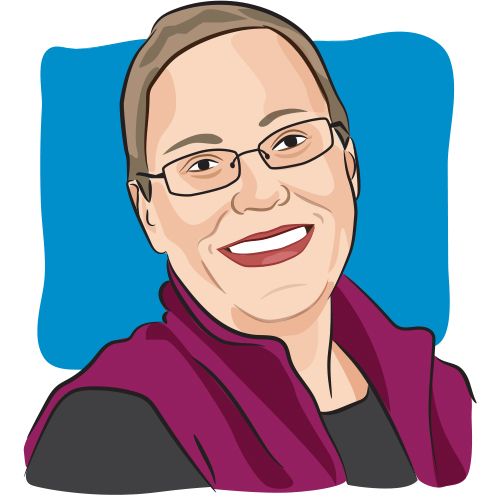Adjusting to Incorporate Cancer Into Life
After being diagnosed with cancer, I experienced the fear of missing out, but eventually replaced it with the joy of missing out.

Within weeks of hearing the words “You have metastatic breast cancer,” I was determined to be as active as possible and to not let treatment or cancer keep from living my life. If anything, I did far more in the first months after my diagnosis than I did in the months preceding it.
I was frightened and shocked at the diagnosis, and today I am certain that it took me many months to begin to comprehend how it would shape the remainder of my life. I suppose I was in constant state of denial, only recognizable long afterward when I think about my determination to focus on things I could control.
Healthy or not, my decision to never wave the white flag helped me get through the first scary year.
Only recently, as I took on more and more and as my kids reached their early 20s, have I acknowledged that while seeking control by doing-all-the-things is well and good, there is also control in the ability to not do things.
For me, FOMO (Fear of Missing Out) took center stage for several years, and while I value and respect everything that I have done there was a point last year when I realized I was saying “Yes” where a better answer would be “No, but I know a great person for you.” I was already good at saying no and connecting others but maybe Iwasn’t doing it often enough.
I resolved to think about the life I want today before agreeing to activities that would lead me away from that life.
I still have a lot on my plate, but it is piled high with things that deeply interest me instead of packed with everything, all the time. FOMO had started to wear on me. I now ask myself, “Does packing everything in still serve me or can I simply acknowledge that I will do some things and not do others? Can I apply JOMO (Joy of Missing Out) instead?”
To be honest, this attitude adjustment hasn’t been easy. To start with, it can be hard to say no to people, ideas, or plans you care about.
But besides that, when you live with cancer, maybe particularly one that is likely to end your life, spending as much time as possible with the people you love, doing the things you love, and experiencing it all takes on an urgency that people without such a diagnosis can’tcomprehend. Saying “No” can feel like your heart is breaking when there may be only one chance, even if saying “Yes” isn’t what you actually want.
I experienced this just a few weeks ago when time with many people I love wore me out so much that it took twice as long to recover than the amount of time we spent together. I didn’t want to miss out onanything, and my body paid for it.
I knew it was going to go that way because I’d done it before.
Apparently, getting better at saying “No” or at least “Not today” remains a stretch for me. I have a lifetime’s history of wearing myself out by doing too much, which always results in one of two things: resenting the people who asked me to do something or not enjoying the moments I am living. Neither of these outcomes are okay, and neither is the fact that I pay for overstretching myself in physical exhaustion.
This is a reminder to myself and to us all that a life driven by FOMO could be limiting in ways that really matter. Listening to our bodies during and after (for those whose treatments end) cancer and listening to our hearts is something we can do for ourselves, but others benefit too because we are completely present, eager to jump in with joy.
For more news on cancer updates, research and education, don’t forget to subscribe to CURE®’s newsletters here.
FDA, Cancer Vaccine Updates and a Misguiding of Breast Cancer Treatment
February 5th 2024One cancer vaccine may still be years away from being available, a breast cancer test may be misguiding treatments for Black women and the review of two oncology regimens are being expedited by the FDA.
Listen